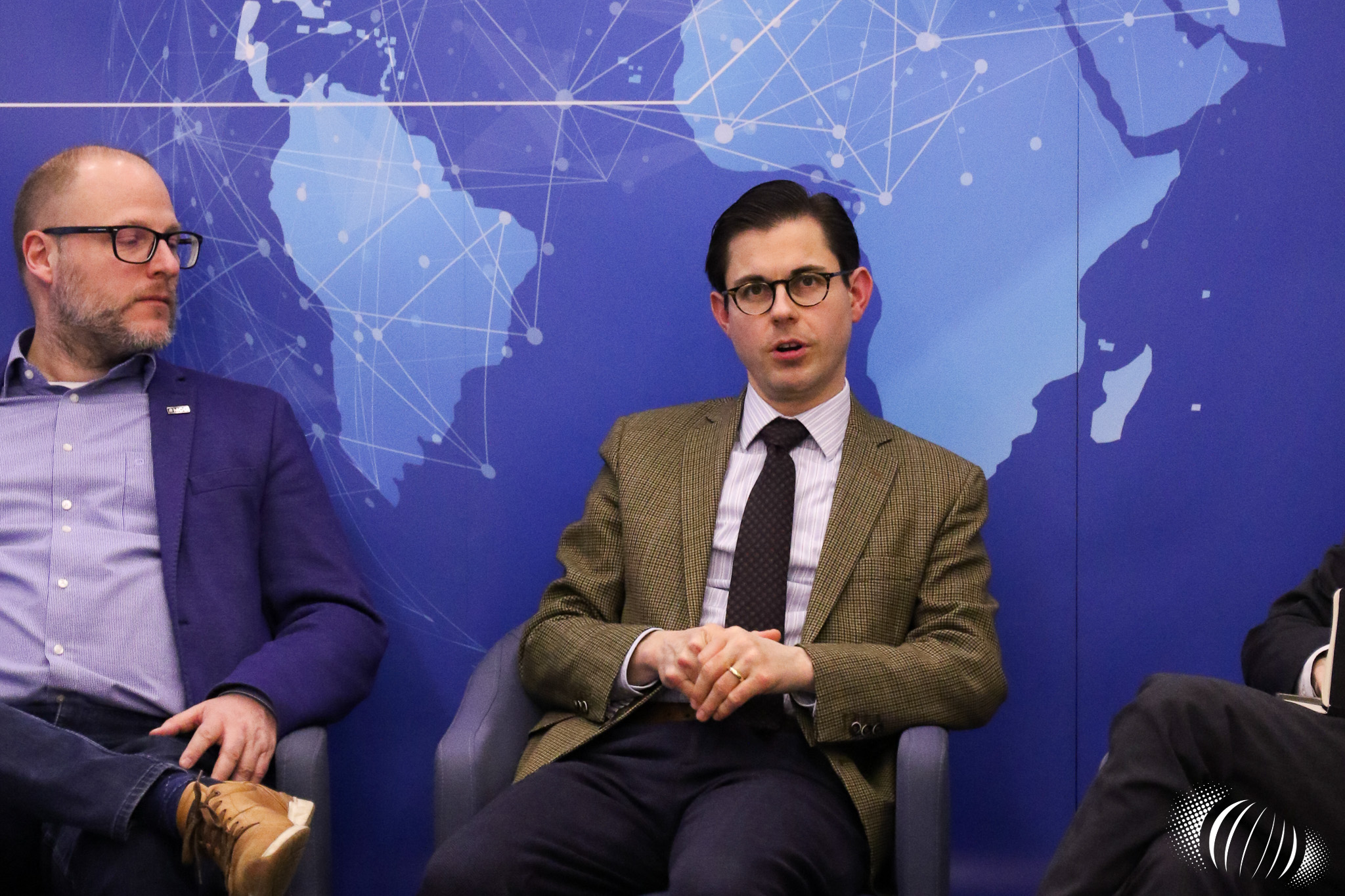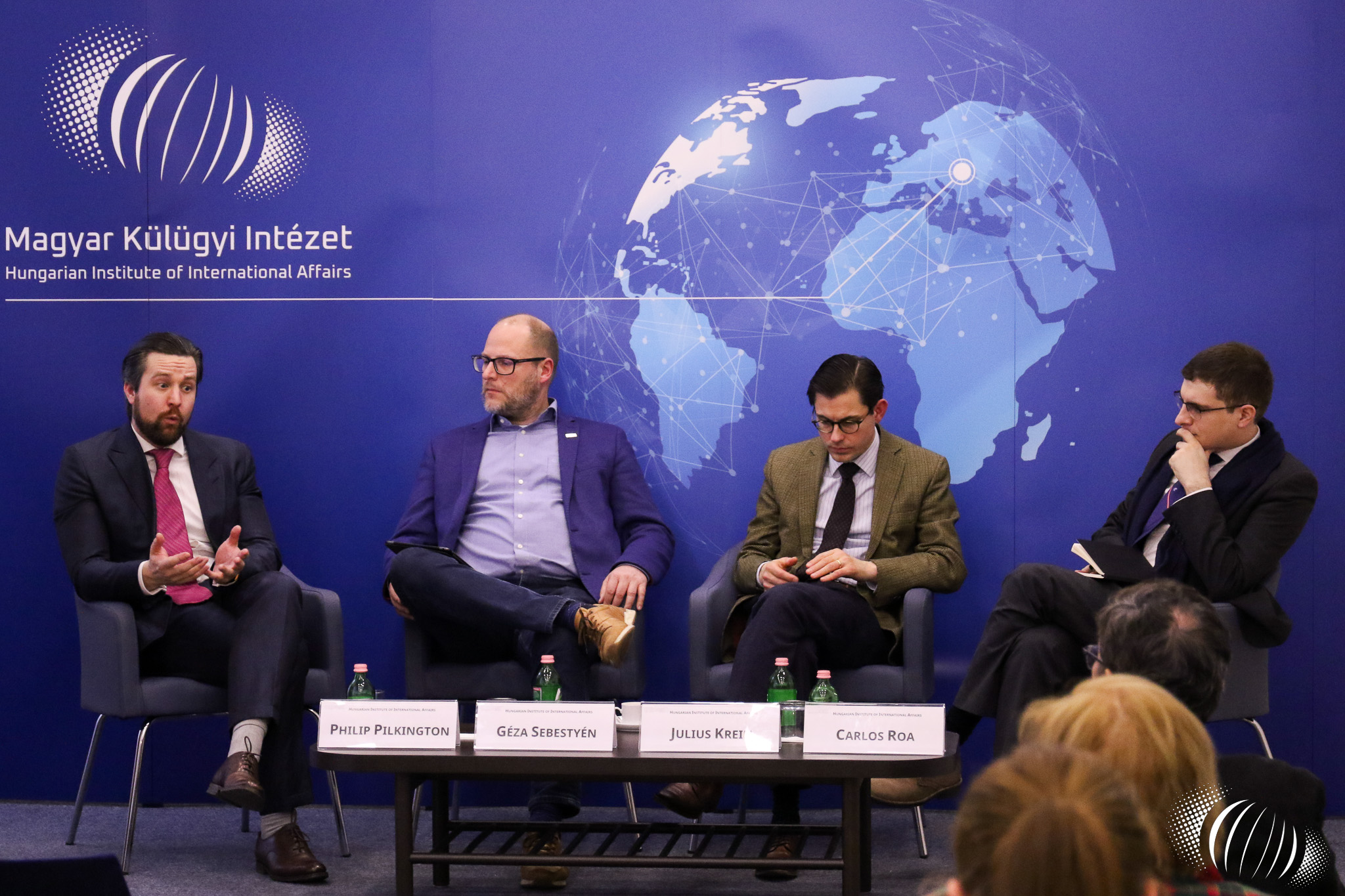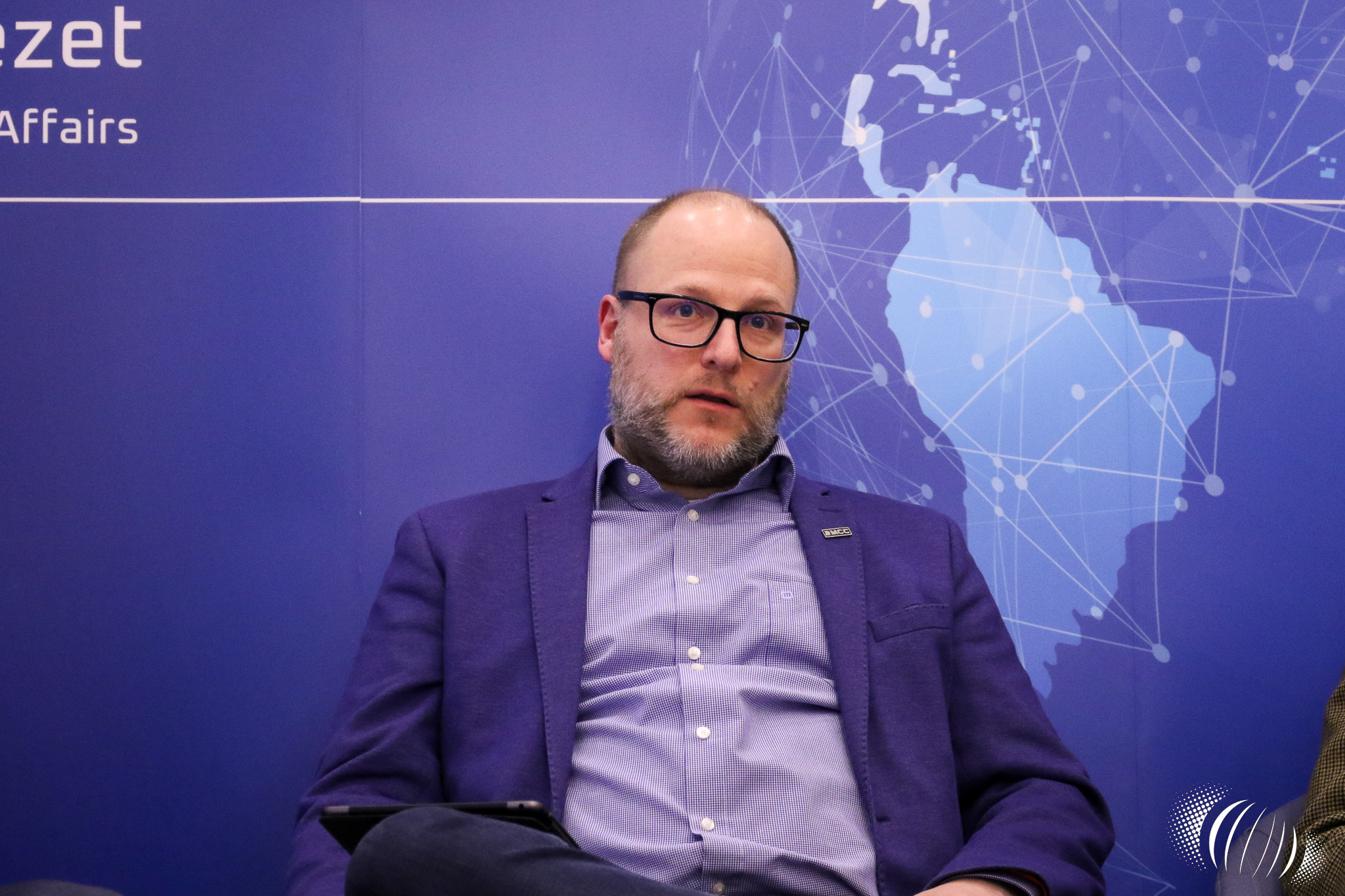On January 28, 2025, the Hungarian Institute of International Affairs (HIIA) organized a roundtable discussion titled, “Navigating Uncertainty: Global Economic Predictions for 2025”. The speakers included Julius Krein, Editor of American Affairs, Géza Sebestyén, Head of the MCC Center for Economic Policy, and Philip Pilkington, Senior Research Fellow at HIIA. The event was moderated by Carlos Roa, Visiting Fellow at the Danube Institute.
Julius Krein began the discussion by focusing on the challenges facing the new Trump administration: macroeconomic pressures such as the high price of eggs and other staples domestically, vulnerable supply chains, the inability of the U.S. to compete with China’s infrastructure investments in places like Africa, and the question of raising tariffs. Regarding the last, Philip Pilkington noted that the U.S. administration is more prepared to deal with the question this time than it was during the first Trump term, and there is a broad understanding that tariffs can serve as an effective pressure tool, but they don’t improve the economy. When one country raises tariffs against another, the other also raises tariffs, and both economies are hurt, as Géza Sebestyén explained. Still, they can be used to bring another country or group of countries to the negotiating table and will likely be used for this purpose.
Géza Sebestyén focused his remarks on Europe, where overregulation is creating a lack of innovation and pushing talent abroad, while high energy prices resulting from the war in Ukraine are continuing to cause inflation and hurt the competitiveness of manufacturing. He highlighted two important recent documents: the Draghi report, which pinpointed these problems, and the Budapest Declaration, which offered some solutions, namely ending the war in Ukraine and reforming the regulation system. ****Hopefully there will be progress on these items in the coming year. Julius Krein, meanwhile, noted that Europe should focus on economic sectors in which it’s already performing well, such as aviation, and formulate a clear economic strategy vis-à-vis U.S.-China competition.
Regarding global economic competition, Philip Pilkington stressed that a strain in the relationship between the U.S. and Europe would only bring China further into Europe, so it is not in the interests of the United States. He also suggested at the end that the role of the U.S. dollar as the global reserve currency is on the decline—a global transition that should be actively managed—and that certain industries like the artificial intelligence industry will be under threat in 2025, as demonstrated by China’s recent release of DeepSeek, a Chinese rival to ChatGPT.



